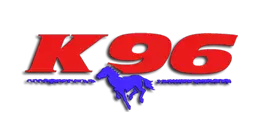
Montana State Researcher wins Young Scientist Award from American Society of Animal Science
BOZEMAN — Being relatively new to academia, Rodrigo Marques, an assistant professor in the Department of Animal and Range Sciences at Montana State University, never anticipated receiving awards for his research, at least this early in his career. But, despite the short time he has been part of the College of Agriculture faculty, he has gained recognition for his research centered on maternal nutrition of beef cattle and its impacts on offspring performance.
Marques received the 2022 Young Scientist award from the western section of the American Society of Animal Science, which recognizes outstanding research achievement by members under the age of 40 in the organization. Marques will be celebrated during the 2022 ASAS Western section meeting in Park City, Utah, in late September.
“Congratulations to Dr. Marques for this well-deserved recognition from his peers,” said Sreekala Bajwa, vice president of agriculture and dean of the College of Agriculture and director of the Montana Agricultural Experiment Station. “During the short time since joining MSU, Rodrigo has established productive partnerships with the livestock industry to build a research program that addresses current and emerging challenges in livestock production. He is also an effective teacher. It is quite inspiring to hear his students gushing about the opportunities he provides them to learn and engage through his classes and research work.”
According to ASAS, “Dr. Marques is quickly setting himself apart as a top-tier and highly productive scientist with an astonishing list of accomplishments for a scientist of his career stage.” He has authored or coauthored 53 refereed journal articles, four book chapters, 16 proceedings papers, 21 peer-reviewed extension articles, 27 conference abstracts, nine station reports, and seven popular press articles.
Marques, who came to MSU in 2020, focuses on nutritional and management strategies to enhance productivity and profitability of cow-calf systems. He currently runs fetal programming trials, where his team feeds cows during gestation and sees the results on the calf after it’s born in terms of performance in feedlots, whether they get sick, carcass data and more.
Marques also does research on preparing calves to face the inevitable stressful situations that occur during road transport and feedlot entry in other states like Nebraska, New Mexico and Texas. One project is examining administrations of bovine appeasing substance, or BAS, and measuring its performance, health and psychological effects on cattle. BAS is a synthetic analog to the bovine appeasing pheromone produced in a cow’s mammary gland. It has a calming effect and lowers stress levels.
“It’s great to see Dr. Marques being recognized for his contributions to the animal science field through this prestigious award” said Carl Yeoman, head of the Department of Animal and Range Sciences. “He has really hit the ground running since he joined the department with several grants and industry contracts that have resulted in a succession of highly impactful papers. I’m looking forward to seeing his career continue to flourish and the impacts he will have on animal agriculture in Montana.”
While Marques’ academic career is still fresh, he had more than a decade of industry experience. A native of São Paulo, Brazil, Marques worked at a feedlot as a manager and oversaw 15,000 animals. He received his bachelor and master’s degrees in animal science at São Paulo State University (UNESP-Dracena, Brazil) and received his Ph.D. in animal science from Oregon State University. While he initially worked on feedlot nutrition, he found working with calf nutrition more compelling.
“I started to study the impacts of maternal nutrition during gestation on the baby calf and it was very interesting,” Marques said. “When a cow is pregnant, you don’t know what is going to happen to the calf. But when you make little changes in the diet or management, you can change the future of that calf, and that is what got me.”
The switch to academia and research has been rewarding for Marques. He teaches livestock feeding and animal nutrition and uses a lot of his real-life experiences in the industry to explain difficult concepts. For instance, when discussing the importance of carbohydrates, he talks about how he has had to use biochemistry to prevent diseases like ruminal acidosis, a potentially lethal condition resulting from changes in gut pH levels.
He also opens his research labs to any of his undergraduate students to get a more real-world understanding of working with cattle.
“My students can have a perspective of how to do things in a research way, like how to design a research trial and publish a peer-reviewed article using the university farm,” Marques said. “They have to feed the animals, make sure to take care of their health and more. I’ve had some vet students come to my research program to learn how to bleed a calf or do a liver biopsy. These are things you can’t do in the classroom. It’s very rewarding to see them learn in a hands-on way.”
- By Meaghan MacDonald-Pool, MSU News Service -
More From K96 FM









